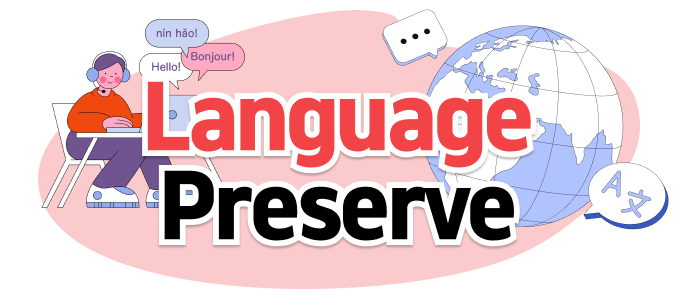WOLF Lab's Mission to Preserve Native Languages: A Focus on the Alabama Language
The loss of indigenous languages is a lamentable reality, one that not only erases words but also erases cultures, heritages, and identities. Harvard University's WOLF Lab, led by Assistant Professor Tanya Bondarenko, is taking active steps to combat this erosion with a particular focus on the Alabama language spoken by the Alabama-Coushatta Tribe in East Texas. Their efforts aim to document, preserve, and revitalize this endangered language, ensuring it remains a vibrant part of the community.
Understanding the Importance of Language and Culture
Ava Silva '27, a member of the Alabama-Coushatta Tribe and a student at Harvard, grew up hearing but not fully speaking her tribe’s language. Despite her grandmother, or "áapo" as referred to in Alabama, being a native speaker, Silva was never taught to speak it fluently due to historical and cultural pressures. For Silva, language is deeply intertwined with cultural identity: "To know the language is to know the culture, and the culture feeds from the language." It's a sentiment that resonates with many indigenous communities that have watched their languages fade under the pressures of dominant cultures and languages.
A Troubled Past: The Suppression of Indigenous Languages
For many in Silva's grandmother's generation, English was an imposition encountered for the first time in primary school. The transition was often harsh and punitive, and, as Silva recounts, involved physical reprimands for using their native tongue. The historical attempt to suppress indigenous languages is a familiar narrative among many communities around the world, a story intertwined with colonialism and cultural eradication. Assistant Professor Bondarenko observes, "These are the stories we encounter all the time… Other people come and take their land, try to take everything else from them, try to prohibit people from speaking their language and from doing their cultural practices."
Globally, approximately 44% of languages are considered endangered. The urgency highlighted by these statistics propels the work of WOLF Lab to not only learn about these languages but also to preserve them actively.
The Work of WOLF Lab in Documentation and Preservation
Through the WOLF Lab, a dedicated team of linguists engaged in vital work to document and understand the subtleties of the Alabama language. The summer marked an intensive fieldwork phase where the team conducted elicitations with 19 native speakers, amassing over 140 hours of recordings. These recordings provide invaluable insights into the current use of Alabama and have been shared with the community as a resource for language preservation.
Silva, serving as a community coordinator, played an instrumental role. She helped the Lab identify native speakers and worked closely with the morphology team to explore verb conjugations. For Silva, this project carries a profound significance: "To be able to do this project and say, ‘This language is so beautiful and I’m sorry that anyone ever made you feel like it wasn’t,’ has been something I love. You see them light up and have this moment of healing."
The Academic Resonance and Broader Impact
Jacob Kodner, a second-year Ph.D. candidate and member of WOLF Lab, emphasizes the broader academic implications of studying languages like Alabama. He notes that a substantial amount of linguistic theories are based on Indo-European languages, predominantly English. Kodner argues for the necessity of expanding research to include non-Indo-European languages to develop a more comprehensive understanding of language mechanics. Many Indigenous languages across North America are critically endangered, and working with Indigenous communities locally is vital to the discipline of linguistics.
Future Plans for Continued Preservation Efforts
The findings and progress of WOLF Lab’s efforts have been shared with the tribal council, reinforcing the collaboration between academia and the community. The planned return visits to the Alabama-Coushatta Reservation for further fieldwork in the coming winter and summer reflect the Lab’s ongoing commitment.
Silva remains adamant in her belief that preserving and revitalizing languages like Alabama is pivotal for Indigenous communities. Beyond practical communication, these languages serve as conduits for cultural values and histories. The preservation work unites communities and fosters cultural pride and resilience.
In Conclusion
The WOLF Lab's work is about more than saving a language from extinction; it is about safeguarding cultural heritage, fostering community healing, and advancing academic understanding of human linguistic diversity. Beyond the academic walls of Harvard, these efforts resonate on a personal and communal level, providing a blueprint for how endangered languages can be preserved for future generations. The revival of languages like Alabama offers a path towards reclaiming identity and history, ensuring that the voices of the past continue to be heard in the present and beyond.
출처 : Original Source

